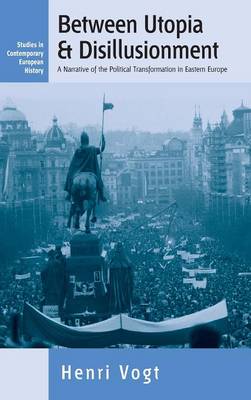Contemporary European History
1 primary work
Book 1
Scholarly interpretations of the collapse of communism and developments thereafter have tended to be primarily concerned with people’s need to rid themselves of the communist system, of their past. The expectations, dreams, and hopes that ordinary Eastern Europeans had when they took to the streets in 1989, and have had ever since, have therefore been overlooked – and our understanding of the changes in post-communist Europe has remained incomplete. Focusing primarily on five key areas, such as the heritage of 1989 revolutions, ambivalence, disillusionment, individualism, and collective identities, this book explores the expectations and goals that ordinary Eastern Europeans had during the 1989 revolutions and the decade thereafter, and also the problems and disappointments they encountered in the course of the transformation. The analysis is based on extensive interviews with university students and young intellectuals in the Czech Republic, Eastern Germany and Estonia in the 1990s, which in themselves have considerable value as historical documents.
